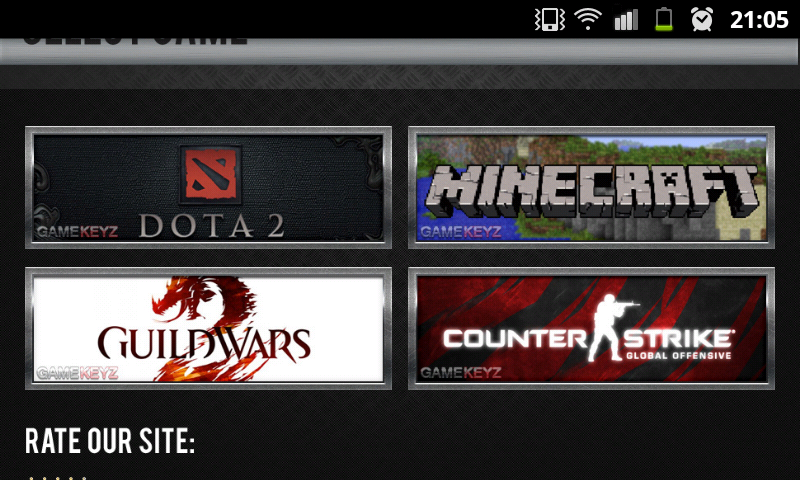Counter Strike Fans Tempted with False CS:GO Keys

Crooks put up a spoofed Gamekeyz website to lure Counter Strike fans with 500 allegedly free registration Keys.
Valve Corporation, developer of the world’s # 1 online action game, launched last week their latest version of Counter Strike – Global Offensive. With no crack or patch available to circumvent the serial number validation mechanism, cyber-“terrorist” teamed up in a 1v1 game against early adopters by promising 500 free serial numbers on a spoofed Gamekeyz website.
Fig. 1. Spoofed Gamekeyz website
To receive a CS:GO registration key, gamers are asked to hit a button that will take them to a designated survey webpage, or access a commercial site where they end up releasing private information. Crooks understand that in this phase of the release they can easily get gamers to give up sensitive data in return for empty promises of a game license. The old school trick gets the job done.
Fig. 2. Fake CS:GO registration keys
Crooks spoofed Gamekeyz, a trusted website used by a lot of gamers and advertised about 500 game keys for which the users only needed to answer questions in a survey or to simply access a commercial webpage. On carrying out the action, gamers are asked for personal data such as name, address, telephone number, and e-mail and phone provider – sensitive information that will most likely be used to sign-up users for a service they never requested.
Fig. 3. Commercial suggestions for gamers who want a free registration key
The personal data might also land into a profile database to be used in other scams or in phishing attacks when another longed-for game, movie, product or service is on the verge of being launched in some regions but not yet in others.
Ip-to-location is customary used in this type of scam to personalize the greeting message, make it more credible as it reaches people in their own language. If, for instance, you’re in Germany, you will have the message displayed in German.
To be clear, the gamer will NOT receive a free CS key. Spoofing official webpages and coming up with a tempting offer for the fans is an old technique and apparently it pays off, since Bitdefender sees a lot of reinventions of these schemes around the launch date of a long awaited game, movie, product or service.
Around the time of the launch fans are too excited to give a second thought to the unusual demands of ill-intended people. In the heat of the moment, they tend to be less attentive and give up information that in any other circumstance they would be reluctant to share.
tags
Author
A blend of product manager and journalist with a pinch of e-threat analysis, Loredana writes mostly about malware and spam. She believes that most errors happen between the keyboard and the chair.
View all postsRight now Top posts
How to Protect Your WhatsApp from Hackers and Scammers – 8 Key Settings and Best Practices
April 03, 2025
Outpacing Cyberthreats: Bitdefender Together with Scuderia Ferrari HP in 2025
March 12, 2025
Streamjacking Scams On YouTube Leverage CS2 Pro Player Championships to Defraud Gamers
February 20, 2025
How to Identify and Protect Yourself from Gaming Laptop Scams
February 11, 2025
FOLLOW US ON SOCIAL MEDIA
You might also like
Bookmarks










